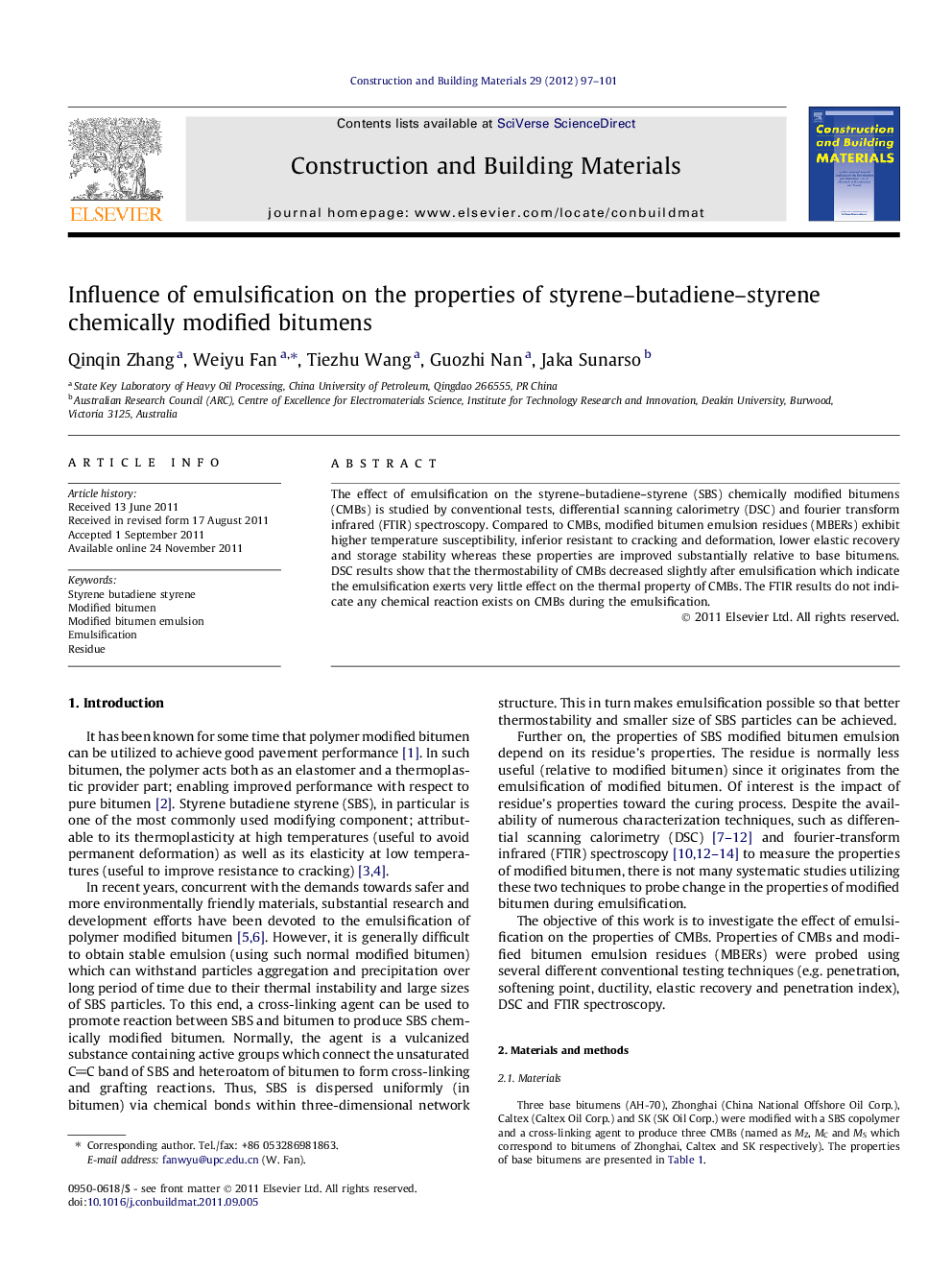| Article ID | Journal | Published Year | Pages | File Type |
|---|---|---|---|---|
| 259047 | Construction and Building Materials | 2012 | 5 Pages |
The effect of emulsification on the styrene–butadiene–styrene (SBS) chemically modified bitumens (CMBs) is studied by conventional tests, differential scanning calorimetry (DSC) and fourier transform infrared (FTIR) spectroscopy. Compared to CMBs, modified bitumen emulsion residues (MBERs) exhibit higher temperature susceptibility, inferior resistant to cracking and deformation, lower elastic recovery and storage stability whereas these properties are improved substantially relative to base bitumens. DSC results show that the thermostability of CMBs decreased slightly after emulsification which indicate the emulsification exerts very little effect on the thermal property of CMBs. The FTIR results do not indicate any chemical reaction exists on CMBs during the emulsification.
▸ Effect of emulsification on chemically modified bitumens is determined. ▸ Emulsion residues exhibit inferior properties relative to modified bitumens. ▸ Emulsion residues show improved performance relative to base bitumens. ▸ Emulsification exerts slight thermal impact on modified bitumens. ▸ Microstructure of modified bitumens does not change during emulsification.
